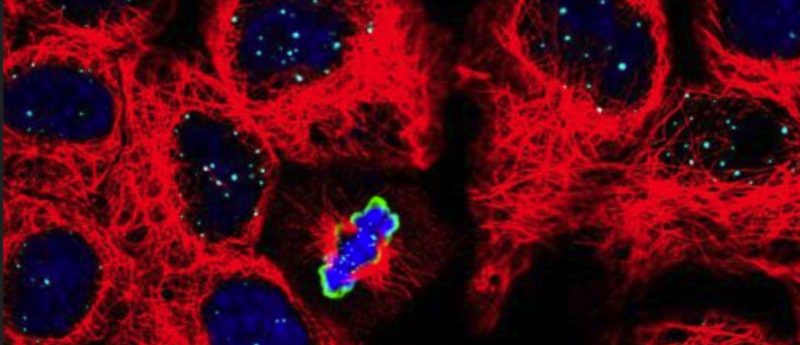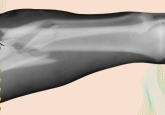T-cell therapeutics may face genomic instability following CRISPR editing

Researchers from Tel Aviv University (TAU-Israel) have published a study in Nature Biotechnology identifying potential risks of CRISPR-based therapeutics. They cautioned, “the CRISPR genome editing method is very effective, but not always safe. Sometimes cleaved chromosomes do not recover, and genomic stability is compromised – which in the long run might promote cancer.”
In 2020, the first approved clinical trial utilizing CRISPR was conducted at the University of Pennsylvania (USA). Researchers collected patient T cells and used CRISPR/Cas9 to edit three genes. The first two edits were on chromosomes seven and 14, and were responsible for removing the T cell receptor. The third edit, on chromosome 2, removed PD-1 – an immune checkpoint protein. After editing these genes with CRISPR, researchers utilized a lentivirus to insert an engineered cancer-specific T cell receptor.
In the present study, researchers from TAU sought to examine the extent of potential CRISPR-induced damage to the T cell genome by replicating the 2020 Pennsylvania experiment, cleaving the T cells’ genome at chromosomes two, seven and 14. They then utilized single-cell RNA sequencing to measure the expression levels of each chromosome in every individual cell. The goal was to evaluate whether the potential advantages of CRISPR therapeutics might be outweighed by risks stemming from the cleavage itself.
The research was led by Adi Barzel from TAU’s School of Neurobiology, Biochemistry & Biophysics at The George S. Wise Faculty of Life Sciences, and by Asaf Madi and Uri Ben-David from TAU’s Sackler Faculty of Medicine and the Edmond J. Safra Center for Bioinformatics, in collaboration with Tel Aviv Sourasky Medical Center (all Israel).
Uri Ben-David and his research associate Eli Reuveni explained: “The genome in our cells often breaks due to natural causes, but usually it is able to repair itself, with no harm done. Still, sometimes a certain chromosome is unable to bounce back, and large sections, or even the entire chromosome, are lost. Such chromosomal disruptions can destabilize the genome, and we often see this in cancer cells. Thus, CRISPR therapeutics, in which DNA is cleaved intentionally as a means for treating cancer, might, in extreme scenarios, actually promote malignancies.”
The TAU researchers discovered a loss of genetic material in a significant percentage of the CRISPR-treated cells. For example, when chromosome 14 had been cleaved, about 5% of the cells showed little or no expression of this chromosome, indicating that these cells were unable to repair the damaged DNA. When all chromosomes were cleaved simultaneously, the damage increased, with 9%, 10% and 3% of the cells unable to repair the break in chromosomes 14, 7 and 2, respectively. However, the degree of the damage sustained by the three chromosomes varied.
Asaf Madi and his student Ella Goldschmidt explained the data, “Single-cell RNA sequencing and computational analyses enabled us to obtain very precise results. We found that the cause for the difference in damage was the exact place of the cleaving on each of the three chromosomes. Altogether, our findings indicate that over nine percent of the T cells genetically edited with the CRISPR technique had lost a significant amount of genetic material. Such loss can lead to destabilization of the genome, which might promote cancer.”
In light of these findings, the researchers caution that CRISPR therapeutics should be employed with extreme caution and propose alternative methods should be used as an alternative to CRISPR for particular medical procedures.
Additionally, the researchers recommend further study into two potential solutions for CRISPR-induced genome damage: limiting the formation of damaged cells or recognizing damaged cells and eliminating them before they are re-introduced to the patient.
Adi Barzel and his PhD student Alessio Nahmad concluded, “Our intention in this study was to shed light on potential risks in the use of CRISPR therapeutics. We did this even though we are aware of the technology’s substantial advantages. In fact, in other studies we have developed CRISPR-based treatments, including a promising therapy for AIDS. We have even established two companies – one using CRISPR and the other deliberately avoiding this technology. In other words, we advance this highly effective technology, while at the same time cautioning against its potential dangers. This may seem like a contradiction, but as scientists we are quite proud of our approach, because we believe that this is the very essence of science: we don’t ‘choose sides.’ We examine all aspects of an issue, both positive and negative, and look for answers.”
Source: Embassy of Israel (London) press release





